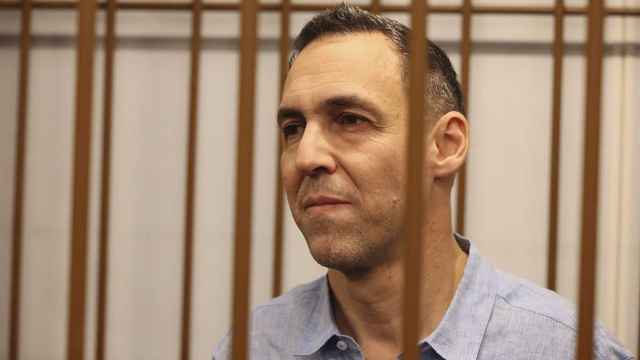China National Petroleum Corporation and Gazprom were ready to scoop up Kazakh oil assets in January if ventures led by Eni and BG Group collapsed, a U.S. diplomatic cable posted on WikiLeaks.org shows.
U.S. Ambassador Richard E. Hoagland sent the cable on Jan. 25 after a private dinner with Maksat Idenov, then the first vice president of state-owned oil and gas producer KazMunaiGaz, at the Radisson Hotel in Astana, Kazakhstan’s capital, according to the leaked document.
“Idenov alleged that Gazprom and China National Petroleum Company ‘continue to circle like vultures,’ hoping that the Kashagan and Karachaganak consortia will implode and then they can pick up the pieces,” Hoagland said in the cable. “‘Won’t happen on my watch!’ Idenov vowed.”
KazMunaiGaz increased its interest in Kashagan, the world’s fifth-largest oil field, to 16.8 percent in 2008, equal to the stakes held by Eni, Exxon Mobil, Royal Dutch Shell and Total, after cost overruns and delays in the start of production. The government is investigating allegations of tax avoidance and illegal oil pumping at Karachaganak, Kazakhstan’s only major oil project without state participation.
Rome-based Eni, Italy’s largest oil and gas company, is the lead partner in developing the Kashagan field. Eni and U.K.-based BG jointly oversee the Karachaganak project.
Eni asked for questions to be submitted to Rome-based spokesman Filippo Cotalini, who didn’t respond to e-mailed messages. Neil Burrows, a spokesman for BG, didn’t return a call seeking comment.
Sergei Kupriyanov, a spokesman for Gazprom, declined to comment on the cable. Phones at CNPC’s office in Almaty, Kazakhstan, weren’t answered during working hours yesterday. Beijing-based CNPC is China’s biggest oil company.
Idenov, a 43-year-old former regional vice president for Shell, resigned from KazMunaiGaz in May. He led the 2008 talks that resulted in Eni and its partners paying increased royalties from Kashagan and ceding shares in the project to KazMunaiGaz. Calls to Idenov’s cell phone weren’t answered.
Galym Tumabayev, a spokesman for KazMunaiGaz in Astana, declined to comment.
WikiLeaks, a nonprofit group that releases information the government wants to keep confidential, has begun posting what it says are more than 250,000 U.S. State Department documents written from December 1966 to February 2010.
State Department spokeswoman Nicole Thompson declined to confirm any information in the documents released by WikiLeaks, saying it was the department’s policy not to comment on specific leaked materials. John Larsen, a spokesman at the U.S. Embassy in Astana, didn’t respond to a message left at his office.
The Hoagland cable was posted yesterday on the web site of the London-based Guardian, one of five newspapers that received advance access to the documents.
A Message from The Moscow Times:
Dear readers,
We are facing unprecedented challenges. Russia's Prosecutor General's Office has designated The Moscow Times as an "undesirable" organization, criminalizing our work and putting our staff at risk of prosecution. This follows our earlier unjust labeling as a "foreign agent."
These actions are direct attempts to silence independent journalism in Russia. The authorities claim our work "discredits the decisions of the Russian leadership." We see things differently: we strive to provide accurate, unbiased reporting on Russia.
We, the journalists of The Moscow Times, refuse to be silenced. But to continue our work, we need your help.
Your support, no matter how small, makes a world of difference. If you can, please support us monthly starting from just $2. It's quick to set up, and every contribution makes a significant impact.
By supporting The Moscow Times, you're defending open, independent journalism in the face of repression. Thank you for standing with us.
Remind me later.





